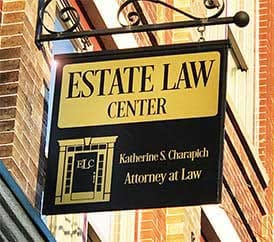Quality of Life and Financial Help – Trusted Agents Welcome
By Attorney Katherine S. Breckenridge, Esq.
Published December 14, 2017 – Culpeper Times
Elder Law : Guardianship or Conservatorship : Virginia
Sell my property? You mean the house in which I live? Gift my jewelry? Surely, not the ring on my finger. Petition the Court? Please, yes – if someone has offended me. Select my investment portfolio? I like my chosen stock. Balance my checkbook? This sounds attractive. File my taxes? You can take over now.
The concepts are simultaneously inviting, yet caution stands in the wings. The agency and authorities are set forth in a document called a power of attorney. Section 64.2-1600 of the Code of Virginia (the Code), defines a “power of attorney” [as] a writing or other record that grants authority to an agent to act in the place of the principal.
On the face of a power of attorney, the structure, having three main components, appears straightforward; however, the authorities can be complex. The structure is comprised of the principal, the agent, and the authorities. The principal, is you – the one executing the power of attorney. You are giving legal authority to another to act on your behalf. This is referred to as “giving agency.” The person to whom agency is being given is often call the agent or the attorney-in-fact. And, the authorities are those actions that an agent may take on behalf of the principal.
Why would you ever want to take such an action? Answer that by asking yourself what would happen if you were not able to take decisions for yourself? What if you lost the ability to make cognitive decisions, who would be able to pay your bills and manage your assets, and make sure that you have a roof over your head and food on the table? What if you are traveling and an action needs to be taken at home and there is no one who has been given the authority to do so? Would that mean that you might lose the sale for which you had worked so hard? Could an application for a benefit be due and you will now miss the deadline?
Think of a power of attorney as having two main pillars. One is intended to help you maintain the quality of your life. The second is to help you with your financial decisions.
Under the “first pillar,” one may find the authorities of decisions regarding real property, tangible personal property, personal maintenance – helping you protect your quality of life, handling legal matters, and making application for government benefits.
Under the “second pillar,” one may find the authorities of decisions regarding wealth management, banks and financial interests, operations of a business interest, gifting, and long-term care planning.
When executing a power of attorney, one may select the broadest range of authorities set forth in the Code, or may enumerate only specific authorities.
A power of attorney may be effective upon incapacitation, effective on a future event or contingency, or effective upon signing and good thru incapacitation. Powers of attorney may be limited in time, limited by the occurrence of an event, or last until death.
Who can execute a power of attorney? An individual may take such an action if she is eighteen years of age and has the capacity to understand the action being taken – that she wants that specific person to be her agent, and to have the authorities delineated in the document.
Who should you name as your agent or attorney-in-fact? Consider name a primary agent and successor agents who you trust. For example, it may be your spouse, a parent, an adult child, a sibling, or a close friend.
There are some who express concern about the granting of authority to another to take an action that could affect their life and their assets. There are safeguards in place. Per the Code, an agent is supposed to act in good faith – honesty in fact, as well as loyally for the principal’s benefit.
Putting a power of attorney in place while you have the capacity to do so, provides peace of mind that there is someone who has the legal authority to act on your behalf. In the event you do not have a power of attorney in place and you lose mental capacity, someone will need to petition the Court for guardianship of your person, and perhaps conservatorship of your estate.
A power of attorney does not guarantee that an Order for Guardianship or Conservatorship may not be necessary under certain circumstances; for example, when the principal is contracting in a manner that is harmful, or there is an abuse of fiduciary authorities by the agent. However, having a power of attorney in place reduces the possibility that a loved one or stranger will have to petition the Court. In addition, there is no guarantee as to who will be appointed in the roles of guardian or conservator, and the power of attorney provides some “direction” to the Court.
Taking advantage of the protective nature of a power of attorney is a prudent action. Don’t leave your quality of life to chance. Making sure there is a trusted individual who can take actions and make decisions on your behalf is well worth the planning and time invested.
